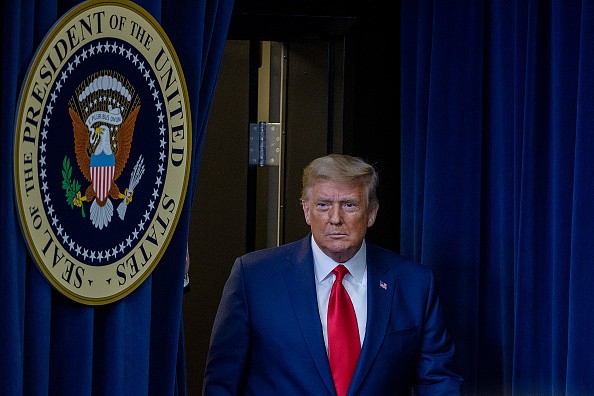House Moves To Override Trump's Veto of Defense Bill

The House of Representatives moved to override President Donald Trump's veto of a defense bill, setting the stage for the first-ever veto override in the Trump presidency.
House members voted 322-87 to override the veto, which is well above the two-thirds required by law, reported The Associated Press.
The defense bill will now head to the Senate for the chamber's veto override attempt. It could become law only if the Senate also votes to override Trump's veto. USA Today reported that the bill dies if only the House overrides it.
According to Trump, he rejected the defense bill last week because he opposed renaming military bases to honor Confederate leaders.
As part of his rejection of the bill, Trump also said it failed to limit social media companies. He claimed these types of companies were biased against him during the 2020 campaign.
He said he wanted Section 230 of the 1996 Communications Decency Act to be repealed, which will remove the shields of big tech companies from the liability of controversial content posted on their websites by third parties.
House Speaker Pelosi Says Defense Bill Will Become Law
In a statement obtained by Fox News, House Speaker Nancy Pelosi said the bipartisan legislation would become law despite Trump's "dangerous sabotage efforts."
She also told the president to "end his eleventh-hour campaign of chaos" and stop using his final weeks in the White House to "obstruct bipartisan and bicameral action to protect our military and defend our security."
Fox News also reported that as Trump approached the final weeks in office, he showed more resistance against lawmakers.
Last week, Trump initially refused to approve a bill that includes $900 billion pandemic relief and $1.4 trillion in government spending. He said lawmakers should increase direct payments from $600 to $2,000.
His decision changed on Sunday after getting disapproval from different parts of Congress.
While some lawmakers said they understand where the president was coming from, they also reminded him of the approval's urgency.
The House passed a measure to increase the direct payments to $2,000 on Monday, but it is still unclear if the Senate would also approve of it.
What Is The Defense Bill About?
Under the defense bill, better known in Congress as the National Defense Authorization Act or NDAA, U.S. troops would be given a three percent pay raise.
There will also be some $740 billion allotted in funding national security and military programs and construction.
Sen. Jim Inhofe, who is chairman of the Senate Armed Services Committee, said the bill is vital for U.S. national security and troops.
"Our men and women who volunteer to wear the uniform shouldn't be denied what they need - ever," Inhofe said.
Senate Majority Leader Mitch McConnell also said the Congress should not break from its nearly six-decade-long streak of passing the defense bill.
AP News reported that many military programs would only go into effect if the bill is approved. It will also guide Pentagon policy and cement decisions on military goals like troop levels and new weapons systems.
Subscribe to Latin Post!
Sign up for our free newsletter for the Latest coverage!














